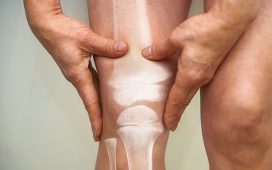Stronger economy is good news for general election winner
The upward revision to Q1 GDP growth from 0.6% quarter-on-quarter to 0.7% q/q this morning (see opening post) suggests whoever is Prime Minister this time next week may benefit from the economic recovery being a bit stronger than expected.
So says Paul Dales, chief UK economist at Capital Economics.
He told clients that the economy may grow faster than expected this year – a boost to the winner of next Thursday’s general election.
The larger rise in GDP in Q1 was mainly due to upward revisions to consumer spending (from +0.2% q/q to +0.4% q/q) and the contribution from net trade (from +0.4ppts to +0.6ppts) more than offsetting downward revisions to government spending (from +0.3% q/q to 0.0% q/q) and residential investment (from +4.1% q/q to +3.2% q/q).
The revision suggests that real GDP growth in 2024 as a whole may be more likely to come in a bit above our existing forecast of 1.0%.
Dales adds:
It now looks as though real household disposable income will grow by more than our forecast of 2.0% this year and we are expecting a solid 3.5% gain next year too. This underpins our forecast that consumer spending will be the main driver of a rise in GDP of at least 1.0% this year and about 1.5% next year. Should the saving rate fall back from its unusually high level, the economic recovery could be even stronger.
This is certainly good news for whoever will be the Prime Minister this time next week, although it could also contribute to the Bank of England cutting interest rates a bit slower than otherwise.
Key events
The increase in the household savings rate in the first quarter of this year (see earlier post) suggests that people may have more cash set aside, which they could spend later this year if economic confidence picks up.
Thomas Pugh, economist at audit, tax and consulting firm RSM UK, explains:
“The good news is that consumer confidence has been improving gradually over the last year and UK consumers’ confidence in their personal finances has reached the highest since 2021 as the impact of rising real wages filters through into people’s pockets. We expect this to continue over the next year. That suggests household savings patterns will start to return to more normal levels in the first half of the year.
“On that basis, we think the improvement in households’ real incomes that is set to intensify later this year will translate into an increase in spending that will drive the emerging economic recovery and finally drag the UK out of stagnation.”
£10m+ ad campaign with Trevor McDonald was filmed for shelved NatWest shares sale

Mark Sweney
A “Tell Sid”-style ad campaign featuring Sir Trevor McDonald was filmed to promote the government’s now shelved plan to sell state-owned NatWest shares to the public, the Guardian revealed this morning.
The nationwide campaign – which included TV ads featuring the veteran newsreader and presenter popping up around the UK asking the public “Are you in?” – is understood to have been backed by a large-scale media budget in excess of £10m.
Media sources said the campaign had been scheduled to launch within days when Sunak pre-empted it by announcing an early summer election outside 10 Downing Street on 22 May.
While much of the eight-figure ad spend set aside for it by the government will not have been used, some of the budget will have been spent on coming up with and filming the concept.
More here….
UK house prices tipped to rise by end of 2024
Whoever wins next week’s election could also inherit a recovering housing market.
UK house prices are tipped to climb slightly higher by the end of the year, but to still lag household income growth.
Property data site Zoopla forecasts that UK house prices will be 1.5% (£3,900) higher by the end of 2024, after prices were flat in May.
Zoopla’s latest house price index shows that UK house prices are currently ‘over-valued’ by 8%, but are set to return to ‘fair value’ by the end of the year as incomes rise.
It says:
House prices have seen rises across all areas over the last 3 months to May 2024, however annual house price growth remains negative across southern England despite rising elsewhere.
The housing market continues to shrug off the UK election campaign (just a week to go!), with sales agreed 8% higher than a year ago, and demand 6% higher.
Richard Donnell, executive director at Zoopla says:
“The housing market continues to adjust to higher borrowing costs through modest house price falls and rising incomes. Buyers using mortgages are also relying on longer mortgage terms to gain that extra few percentage points of buying power to afford a home.
The general election campaign has had a limited impact on market activity although the seasonal summer slowdown is arriving. Sales agreed continued to increase and more homes for sale means more buyers looking to move in the second half of the year. The timing of the first cut in the base rate is a key moment and will give a boost to both market sentiment and sales activity. Overall we expect house prices to be 1.5% higher over 2024”
Rate increases and election speculation didn’t manage to dent house prices as much as anticipated, only slow the rate of sales. According to @Zoopla HPI, annual house price inflation remained flat in May 2024 but they predict prices to increase by 1.5% by the end of the year,… pic.twitter.com/6gMB40Q5nh
— Emma Fildes (@emmafildes) June 28, 2024
HSBC customers suffer online banking outage
Away from the GDP report, customers of HSBC bank are having trouble accessing their online and mobile banking services.
HSBC says it’s “really sorry”, and are working hard to fix it.
We’re really sorry that some customers are having issues accessing personal online and mobile banking. Our IT teams are working hard to get these services back to normal. You can still authorise online card purchases via SMS.
— HSBC UK (@HSBC_UK) June 28, 2024
Several customers are unhappy with the disruption; data on website DownDetector shows that more than 7,000 customers had complained of problems this morning.
I’m pretty sure if you or I wasn’t able to fulfil our obligations to the bank, we would be charged for it. It is ridiculously regularly now that the bank can’t fulfil its obligations to its clients. It never comes back the other way though
— PW (@pjwilson1990) June 28, 2024
This is simply not good enough! You caused chaos for me the last time. I shall make an official complaint
— Sarah Carruthers 💙 (@SarahJazz1) June 28, 2024
Thomas Pugh, economist at RSM UK, also predict the economy kept growing in the current quarter, saying:
“All the data suggests that the economy is set to continue to rise in Q2.
“We then expect growth to accelerate in the second half of this year and into 2025 as sharply lower inflation, tax cuts and falling interest rates give households an income boost.”
EY ITEM Club: UK could enjoy a decent consumer-led recovery
Looking ahead, the EY ITEM Club expects UK GDP to grow at a decent pace in Q2 (April-June).
However, growth probably won’t be as fast as the 0.7% recorded in Q1
Peter Arnold, EY UK chief economist, says:
The composite Purchasing Managers’ Index (PMI) averaged the same level in Q2 as Q1. However, the earlier-than-usual Easter appeared to boost consumer activity in March at the expense of April, while strike action in the healthcare sector in June will likely drag on output this month. Therefore, the EY ITEM Club thinks quarter-on-quarter GDP growth will probably come in a bit softer than Q1’s strong rise.
“Further ahead, the EY ITEM Club expects low inflation and persistently strong pay growth to mean real household incomes continue to grow strongly.
Provided rising consumer confidence results in households gradually moving away from the cautious sentiment exhibited over the last year, the EY ITEM Club thinks there is a prospect of a decent consumer-led recovery.”
Current parliament worst for living standards growth since the 1950s
Although the pick-up in growth in January-March is clearly welcome, the broader economic picture is that living standards are lower than at the end of the previous parliament.
New data from the Resolution Foundation this morning shows that real per capita household disposable incomes were lower in early 2024 than they were back in late 2019,
They have calculated that RHDI has fallen by 0.6% since the end of 2019, or 0.1 per cent a year on average, leaving average incomes £120 a year lower per person over the whole period since the last election.
That means the current parliament remains on track to be the worst for living standards growth since the 1950s.
This has likely been the worst parliament for living standards growth for at least 70 years. Going back even further, incomes fell in 1951 (a short parliament) and over 1918-22. pic.twitter.com/Z7JARiFfmJ
— Adam Corlett (@adamcorlett) June 28, 2024
This is partly due to recent economic shocks, such as the Covid-19 pandemic and the cost of living crisis.
But the living standards slowdown can be traced back further – since 2010, typical real non-pensioner household disposable incomes have grown by just 0.5 per cent a year on average.
Adam Corlett, principal economist at the Resolution Foundation, says:
“The last five years have been terrible for living standards growth. Disposable incomes in early 2024 were still lower than they were at the 2019 election, by around £120 per person. Income growth over the parliament so far has been worse than in any other since the 1950s, and the third worst in post-Edwardian Britain.
“Britain is far from alone in experiencing a tough five years – many other countries have been badly affected by Covid-19 and the cost-of-living crisis straight after that. But Britain’s longer-term record on growth is also weak and we remain poorer than many of our peers. Addressing this great living standards slowdown is the ultimate test for whomever wins the election.”
In a far more edifying televised US Presidential debate back in 1980, Ronald Reagan famously asked “Are you better off than you were four years ago?”
Fast forward to Britain in 2024, and the answer, according to the latest @ONS National Accounts data, is sadly no. https://t.co/oDxXWYTcpD
— Resolution Foundation (@resfoundation) June 28, 2024
Kathleen Brooks, research director at XTB, has spotted good news on the economy in today’s GDP report:
Within the service sector, the highest rate of growth was for the professional, scientific and technical activities sectors, which rose by 1.8%.
This was driven by a 7.2% increase in research and development and a 3.3% increase in legal activities. These are high value activities for the UK economy, and growth in this area bodes well for the future of the UK. This may go some way to mitigating the decline in business investment last quarter.
Edison Group: economy slowly bouncing back
Today’s GDP growth upgrade is the final official piece of UK economic data ahead of next Thursday’s general election.
In the last couple of weeks, we’ve learned that inflation has fallen back to the 2% target, but also that unemployment – and wages – are rising, while growth fizzled out in April.
Neil Shah, director of research at Edison Group, says:
The latest UK GDP data shows that Britain’s economy grew quicker than expected in the first quarter of the year, expanding by 0.7% from the previous quarter. This shows that the UK economy still showed slow growth, rather than the most timely monthly estimate that showed no growth in April 2024.
Particularly, services grew by 0.8% on the quarter with widespread growth across the sector; elsewhere the production sector grew by 0.6% while the construction sector fell by 0.6%.
These figures are released less than a week before the General Election, serving as a last check on economic growth. These figures show that the UK economy is slowly starting to turn corner, confirming that the Britain’s economy exited a shallow recession at the start of 2024. Albeit slow, the economy has increased in the latest quarter following two consecutive quarters of negative growth and is slowly showing signs of a bounce back despite significant headwinds.
Stronger economy is good news for general election winner
The upward revision to Q1 GDP growth from 0.6% quarter-on-quarter to 0.7% q/q this morning (see opening post) suggests whoever is Prime Minister this time next week may benefit from the economic recovery being a bit stronger than expected.
So says Paul Dales, chief UK economist at Capital Economics.
He told clients that the economy may grow faster than expected this year – a boost to the winner of next Thursday’s general election.
The larger rise in GDP in Q1 was mainly due to upward revisions to consumer spending (from +0.2% q/q to +0.4% q/q) and the contribution from net trade (from +0.4ppts to +0.6ppts) more than offsetting downward revisions to government spending (from +0.3% q/q to 0.0% q/q) and residential investment (from +4.1% q/q to +3.2% q/q).
The revision suggests that real GDP growth in 2024 as a whole may be more likely to come in a bit above our existing forecast of 1.0%.
Dales adds:
It now looks as though real household disposable income will grow by more than our forecast of 2.0% this year and we are expecting a solid 3.5% gain next year too. This underpins our forecast that consumer spending will be the main driver of a rise in GDP of at least 1.0% this year and about 1.5% next year. Should the saving rate fall back from its unusually high level, the economic recovery could be even stronger.
This is certainly good news for whoever will be the Prime Minister this time next week, although it could also contribute to the Bank of England cutting interest rates a bit slower than otherwise.
Stocks rise in London
The UK stock market has opened higher, as traders digest today’s upgrade to UK GDP.
The FTSE 100 index has gained 40 points, or 0.5%, to 8220 points, recovering yesterday’s drop.
So far his year, the Footsie has gained over 6%.
Mark Preskett, senior portfolio manager at Morningstar Wealth, says:
“The upward revision to the UK’s Q1 GDP is encouraging and further evidence that the UK economy is recovering. The services upgrade – to 0.8% from 0.7% – backs what we have been seeing in inflation data.
“Among UK equities, we are seeing increased dividend payments, share buybacks and M&A activity this year, and this suggests some of the positive economic activity is translating into improved shareholder returns.”
Business investment weaker than thought
Bad news! UK business investment was weaker than first estimated at the start of this year.
Today’s UK national accounts estimates that business investment increased by 0.5% in the January-March quarter, down from the previous estimate of 0.9% growth.
Compared with the same quarter a year ago, business investment is estimated to have fallen by 1.0%.
This is a blow, as business investment is key to achieving improved productivity, and growth. Rising interest rates have been making it harder for businesses to invest.
Real households’ disposable income grows by 0.7%, again
UK real households’ disposable income (RHDI) is estimated to have grown by 0.7% in the first quarter of this year, matching the growth in Q4 2023.
This is a measure of how much income a household is left with, after tax, once you’ve adjusted for inflation.
The ONS reports that wages rose in the last quarter, but so did the tax take…..
Within RHDI, nominal gross disposable income saw growth at 1.1%, because of an increase in compensation of employees of £4.3 billion. This was itself driven by an increase in wages and salaries of £3.0 billion and a decrease in households’ actual social contributions paid by employees of £3.4 billion, which was driven by the reduction of the employees’ National Insurance contribution rate.
This was offset by a rise in taxes on income and wealth of £3.6 billion, which was driven by an increase in taxes on self-employment of £3.1 billion and an increase in the implied deflator of 0.4%.
Household savings ratio rises
Interestingly, the UK’s household savings ratio has risen – showing that people have more excess cash than at the end of last year.
The household saving ratio is estimated at 11.1% in the January-March quarter, up from 10.2% in October-December.
This ratio measures the average percentage of disposable income that is saved.
The ONS says this is driven by an increase in pensions, in income from wages and salaries, and by the cut in national insurance rates at the start of the year.
The household saving ratio is estimated to be 11.1% in Quarter 1 (Jan to Mar 2024), up from 10.2% in Quarter 4 (Oct to Dec) 2023. pic.twitter.com/2PL1KBE9i6
— Office for National Statistics (ONS) (@ONS) June 28, 2024
FYI, the UK economy is now estimated to have grown by 0.7% in Q1 (0.5% for GDP per head), revised up from 0.6%.
And the household saving ratio was 11.1%, up from 10.2% in Q4 23, showing there is still room for a much stronger recovery in consumer spending than most expect… 🤓 pic.twitter.com/G4BzKYy8PT
— Julian Jessop FRSA (@julianHjessop) June 28, 2024
UK GDP per head revised higher
GDP per capita is a better measure of economic performance, as it measures how much the economy grew for each member of the population.
And there’s good news here too, finally.
Real GDP per head is estimated to have increased by 0.5% in the first quarter of 2024, up from a previous estimate of 0.4% growth.
That follows seven consecutive quarters without positive growth.
And on an annual basis, real GDP per capita – basically a measure of living standards – is estimated to be 0.6% lower compared with the same quarter a year ago.
NEW@ons just revised up its estimate of UK economic growth in the first quarter of this year from 0.6% to 0.7%. And GDP per head up 0.5% (previous estimate was 0.4%).
These were already good figures. Now they’re a little better. https://t.co/q3TKQAKrsS— Ed Conway (@EdConwaySky) June 28, 2024
Table: UK leads G7 pack in last quarter (but not since pandemic)
This table, from today’s national accounts, shows how the UK was the fastest-growing G7 member in Q1….
….but lags behind many rivals when you look at growth since the pandemic.
As you can see, the UK (+0.7%) posted the fastest quarter-on-quarter growth in Q1, ahead of Canada (+0.4%), Italy and the US (both +0.3%), France and Germany (both +0.2%) and Japan (which shrank by 0.5%).
But since the end of 2019, the UK has grown by 1.8%, slower than the US, Canada, Italy, France and Japan, but better than Germany which has barely grown since.
Introduction: UK grew faster than thought in Q1
Good morning, and welcome to our rolling coverage of business, the financial markets and the world economy.
The UK economy grew faster than previously thought at the start of this year, as it emerged from last year’s short recession.
Newly updated GDP data, just released, shows that the economy grew by 0.7% in January-March.
That’s up from a previous estimate of 0.6%, and confirms that the UK was the fastest growing G7 economy in the first quarter of this year. That could bolster Rishi Sunak’s argument that the economy is turning a corner, ahead of next week’s general election.
The Office for National Statistics released this encouraging news in the UK’s latest GDP quarterly national accounts, for January to March 2024.
They show that the UK’s services sector expanded by 0.8% in the quarter, up from a previous estimate of 0.7% growth.
Production, though, is now estimated to have grown by 0.6%, revised down from a 0.8% increase.
The construction sector shrank by 0.6%, as builders were hit by bad weather this year.
The ONS reports:
-
In expenditure terms, there were increases in the volume of net trade and household spending, partially offset by falls in gross capital formation and government consumption.
-
The household saving ratio is estimated to be 11.1% in the latest quarter, up from 10.2% in Quarter 4 (Oct to Dec) 2023.
-
Real households’ disposable income (RHDI) is estimated to have grown by 0.7% in Quarter 1 2024, maintaining the same growth as the previous quarter.
Today’s GDP report also confirms that the economy shrank in the second half of last year – contracting by 0.1% in quarter 3, and 0.3% in quarter 4 – a technical recession.
The agenda
-
7am BST: UK national accounts for Q1 2024
-
7am BST: German retail sales for May
-
7.45am BST: French inflation rate for June
-
8.55am BST: German unemployment report for June
-
10am BST: Italian inflation rate for June
-
1.30pm BST: US PCE inflation index for May
-
3pm BST: University of Michigan’s consumer sentiment index for June













